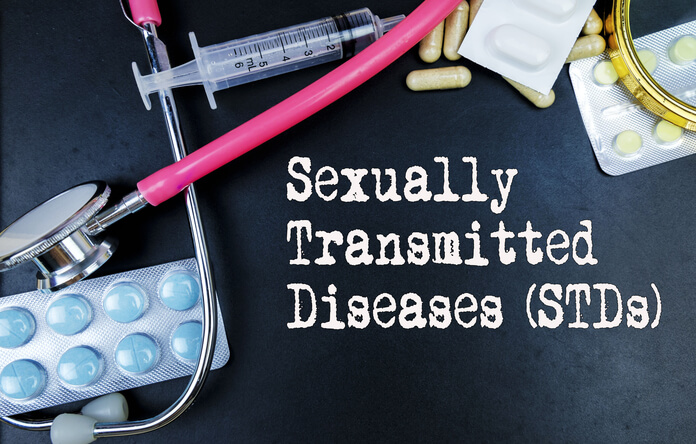O que são infecções sexualmente transmissíveis?
Infecções sexualmente transmissíveis (IST) são doenças que se espalham por meio do contato sexual. Cerca de metade dos 100 novos e IST identificados são relatados em adolescentes e jovens com menos de 24 anos. As ISTs podem ser muito perigosas e afetar a saúde dos jovens. Infelizmente, consequências graves podem envolver saúde reprodutiva, ou seja, infertilidade tubal, gravidez conturbada, etc. em mulheres e AIDS em homens. Fatores comportamentais que causam IST são comportamento sexual inseguro, comportamento de saúde e abuso de drogas. Fatores psicológicos como a autoestima também afetam o diagnóstico e o tratamento da IST nos jovens.

Tipos Comuns de ISTs
Alguns dos tipos comuns de ISTs que você deve estar ciente incluem o seguinte:
- HIV: Human Immunodeficiency Virus, or AIDS-causing agent, destroys the body’s immunity on having unprotected sex with an infected person, or using contaminated needles, or blood transfusion.
- HPV: Human Papilloma Virus is a common STI and seen as genital warts. HPV infection increases risk of cervical cancer in women. Pap tests can detect an HPV infection.
- Chlamydia: Chlamydial infections are characterized by abnormal genital or rectal discharge, burning sensation during urination, and rectal bleeding. In women, it can cause low belly ache and may lead to another disorder called pelvic inflammatory disease (PID). In men, we find urinary problems.
- Gonorrhoea: It causes painful urination or bowel movements, and may even lead to PID, ectopic pregnancy, and infertility in women.
- PID: This STI occurs in reproductive organs due to chlamydia or gonorrhoea. It causes infection of reproductive organs, thus leading to female infertility.
- Genital herpes: This STI is caused by herpes simplex virus (HSV) and manifests itself as a burning sensation which develops into painful sores in the vaginal or rectal area. Treatment is possible but relapses are common.
- Syphilis: Syphilis is a painless open sore or a rash around sexual organs in men and women. Untreated syphilis may lead to heart and nervous system disorders over time.
Outras ISTs incluem vaginose bacteriana, chancroide, infecções por Citomegalovírus, donovanose), piolhos pubianos, trichomoniase, sarna, etc.
Proteção contra ISTs
Existem várias medidas de segurança que devem ser seguidas para garantir que elas estejam protegidas das ISTs:
- Stay mutually monogamous with an uninfected partner
- Use a male latex or female polyurethane condom, even for oral sex.
- Reduce chances of getting HIV infections with preventive steps:
- PEP (post-exposure prophylaxis). Take HIV preventive medication within 72 hours of sexual contact.
- PrEP (pre-exposure prophylaxis). Follow strict medication regularly to prevent any HIV infection from sexual contact in future.
- Have regular medical examination for HIV and STIs.
- Avoid sexual contact with somebody who is HIV-positive, and make sure that the other person is taking their HIV medicines.
- Be aware of the symptoms of STIs and seek immediate medical help if any symptoms occur.
- Avoid douche as it reduces the pH of vaginal area making you more prone to infection.
A triagem para IST é muito importante em jovens sexualmente ativos. Muitas das IST podem ser curadas com sucesso com antibióticos. Algumas ISTs, como herpes, não podem ser curadas completamente e podem ocorrer de novo, o que é evitável. Manter um alerta sobre sua saúde e estar atento aos sintomas pode ser uma grande ajuda no tratamento.


